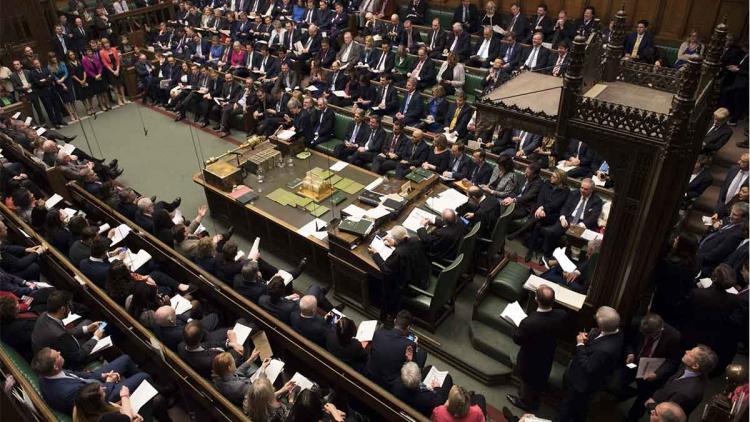In a pivotal move for UK Prime Minister Rishi Sunak, the House of Commons endorsed a bill, 313 to 269 votes, permitting the deportation of asylum seekers deemed ineligible by the British government to Rwanda. Sunak emphasized empowering British control over immigration, aiming to curb criminal involvement.
However, Right-wing Conservative MPs, led by Mark Francois, withheld complete support, awaiting amendments to bolster the bill's stringency. A seven-hour debate unfolded amid news of an asylum seeker's tragic death aboard a vessel off the English coast, sparking concerns about processing methods.
Home Secretary James Cleverly defended the bill within the bounds of international law, yet former Immigration Minister Robert Jenrick resigned, citing concerns that the legislation wouldn't ensure deportation. Labour's Yvette Cooper criticized the government's expenditure on Rwanda without actual deportations.
Recent legal setbacks, including the Supreme Court deeming Rwanda unsafe for deportations, highlighted concerns over human rights in the region, as categorized by Freedom House's 2022 report labeling Rwanda as 'not free' with limited civil liberties.
Key Points:
1. The House of Commons passed the initial stage of a bill proposed by Prime Minister Rishi Sunak, aiming to deport asylum seekers to Rwanda if deemed ineligible by the British government, with a vote of 313 to 269.
2. Sunak emphasized the need for the British populace to determine immigration policies, not external influences, citing the bill as a means to accomplish this goal.
3. Some right-leaning Conservative MPs, led by Mark Francois, expressed reservations about fully supporting the bill in its current form but withheld immediate opposition, seeking amendments to tighten its provisions.
4. A lengthy debate ensued in the House of Commons, coinciding with news of the death of an asylum seeker, sparking concerns regarding the handling of asylum applications, notably on a vessel off the southern English coast.
5. Reports suggest the asylum seeker's death was a suicide, raising questions about the treatment of migrants within the system.
6. Home Secretary James Cleverly defended the bill, asserting that while unconventional, its actions fell within the bounds of international law.
7. Former Immigration Minister Robert Jenrick, who resigned due to dissatisfaction with the bill's language, contradicted Cleverly's claims, arguing that the bill wouldn't prevent individuals from appealing deportation orders, potentially overwhelming the courts and detention facilities.
8. Opposition Labour party's shadow Home Secretary, Yvette Cooper, criticized the government's handling of the situation, highlighting the dismissals within the Home Office and substantial expenditures on Rwanda without executing any deportations.
9. The UK's Supreme Court previously annulled a similar law, citing concerns about Rwanda's safety as a deportation destination, echoing Freedom House's categorization of Rwanda as 'not free' in its 2022 report, especially in terms of civil liberties.
10. Rwanda's classification by Freedom House and the Supreme Court's prior ruling underscore concerns about the suitability of Rwanda as a deportation site, raising ethical and legal dilemmas in the proposed bill.
(With Agency Inputs)
ALSO READ | Rishi Sunak in danger of losing his Premiership


















